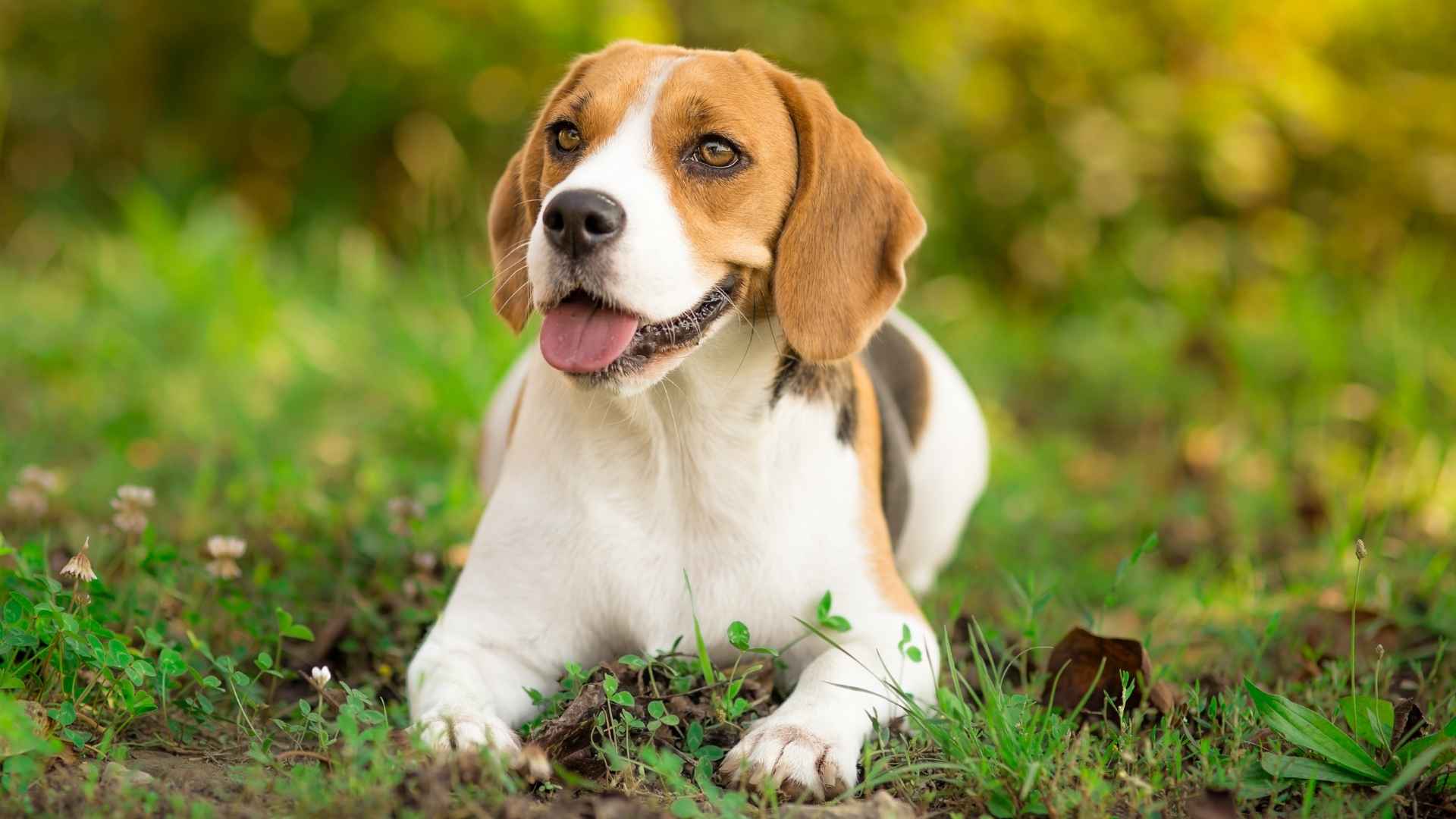Few relationships rival the joy and loyalty shared between people and their dogs. Some breeds are especially famous for their sunny temperaments and steadfast devotion, making them not only wonderful companions but also members of the family who radiate happiness.
These dogs aren’t just playful or friendly; they thrive on human connection, express joy in simple moments, and stand by their loved ones with unwavering loyalty. From their wagging tails to their eager-to-please personalities, these breeds embody the best qualities of canine companionship.
Whether you’re looking for a running buddy who will always greet you with enthusiasm or a gentle guardian who adores family life, certain dogs have earned a reputation as the happiest, most loyal breeds around.
In this article, we’ll explore which breeds shine brightest when it comes to spreading joy and staying true to their people.
Happiest Dog Breeds Known For Their Loyal Nature
1. Golden Retriever
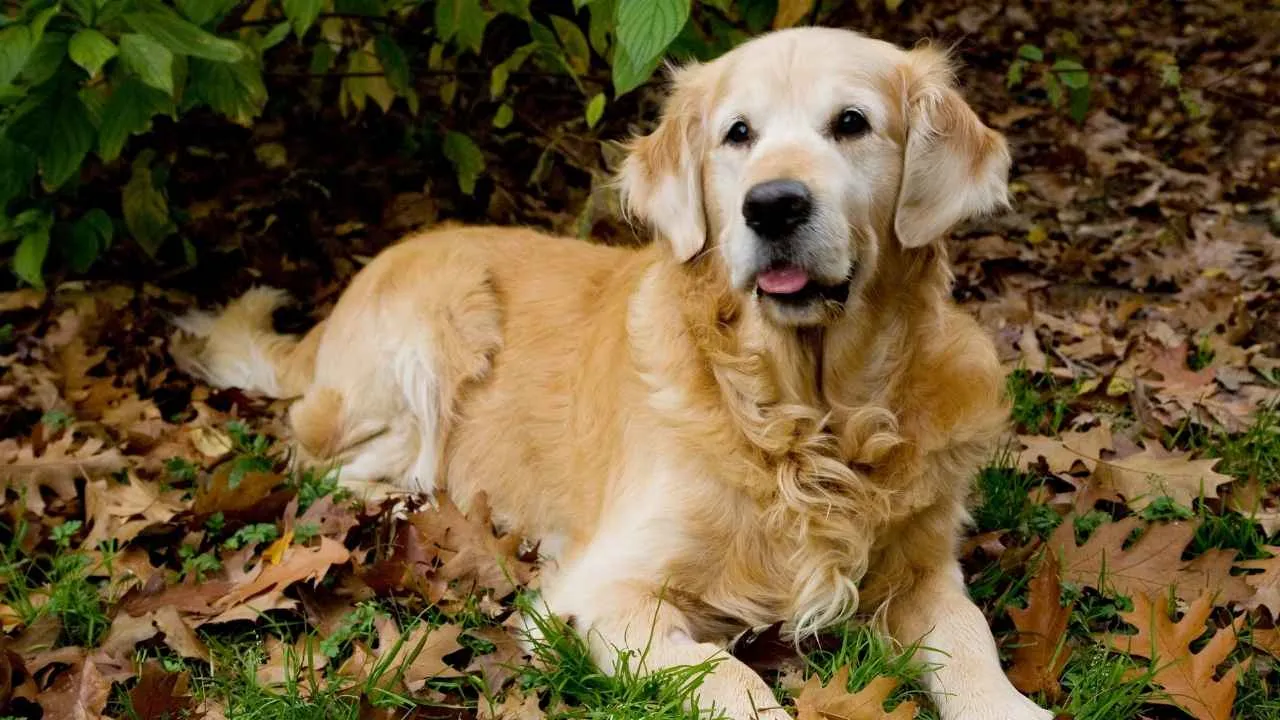
Golden Retrievers are celebrated for their affectionate nature and joyful spirit. Bred originally in Scotland as gun dogs, they were prized for their ability to gently retrieve game. Today, their intelligence and adaptability make them outstanding service dogs, therapy companions, and loyal family members.
Confidence is one of their defining traits. Golden Retrievers approach challenges with enthusiasm and follow tasks to completion. Trainers emphasize keeping sessions lighthearted, as these dogs excel when learning feels like play. Their eagerness to please makes them among the most trainable breeds.

Socially, Goldens stand out as extroverted and patient. They greet adults, children, and other dogs warmly, showing little suspicion toward strangers. Families value them for their gentle demeanor, and their steadiness explains why they are frequently chosen as guide dogs.
Beyond loyalty, their joy is contagious. Golden Retrievers bring energy and positivity to daily life, whether running, swimming, or simply curling up beside their people. Many owners even describe them as dogs that “smile.”
Proper care is essential for this breed’s happiness. They need regular grooming to manage their thick coats, daily exercise to stay fit, and attention to health issues like hip dysplasia or heart conditions. In return, they provide unmatched loyalty and endless affection.
Quick Tips
Keep training sessions playful and rewarding to boost engagement.
Schedule daily exercise and grooming to support health and happiness.
2. Labrador Retriever
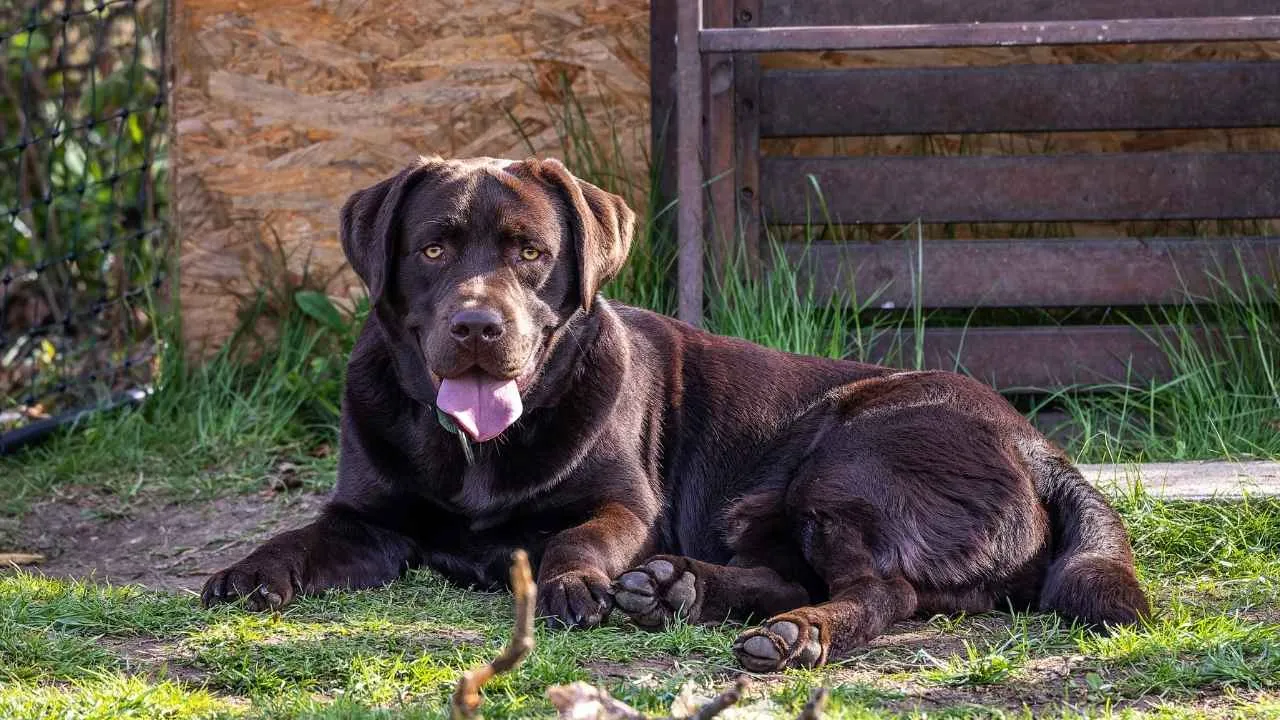
Labrador Retrievers are consistently among the world’s most popular dogs, admired for their adaptability and loyalty.
Originally developed from St. John’s dogs in Newfoundland, they assisted fishermen before becoming beloved companions and hunting retrievers in England. Recognized by the AKC in 1917, Labs have remained America’s favorite breed for decades.
Physically, Labs are strong, medium-to-large dogs with broad heads, otter-like tails, and webbed paws that make them natural swimmers. Their short double coat is water-resistant, typically yellow, black, or chocolate. While grooming is relatively low-maintenance, they do shed heavily twice a year.
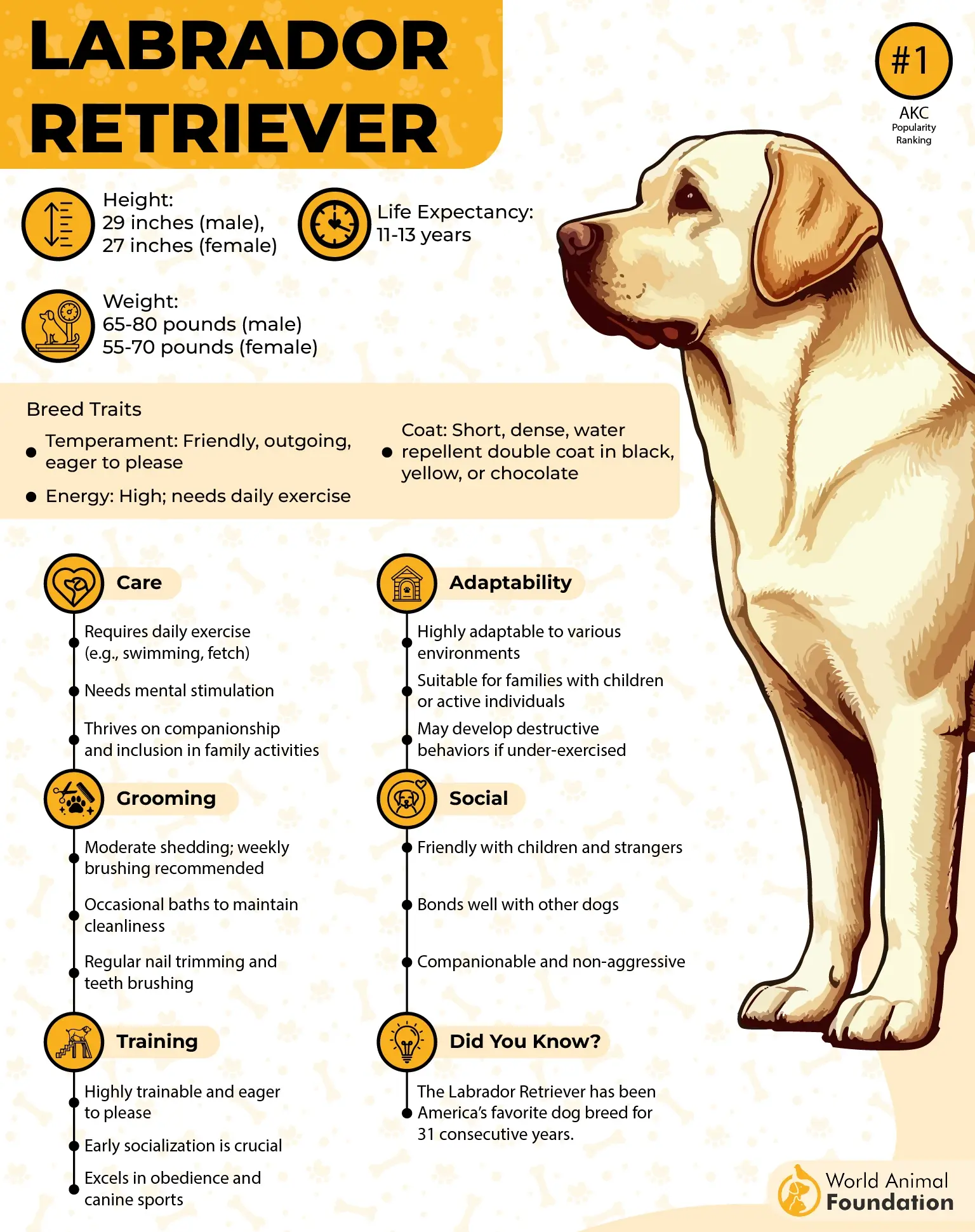
Temperament is where Labradors truly shine. Known for their affectionate, patient personalities, they bond closely with families, welcome strangers, and get along with other pets. Their playful spirit makes them wonderful with children, though their energy levels require consistent outlets.
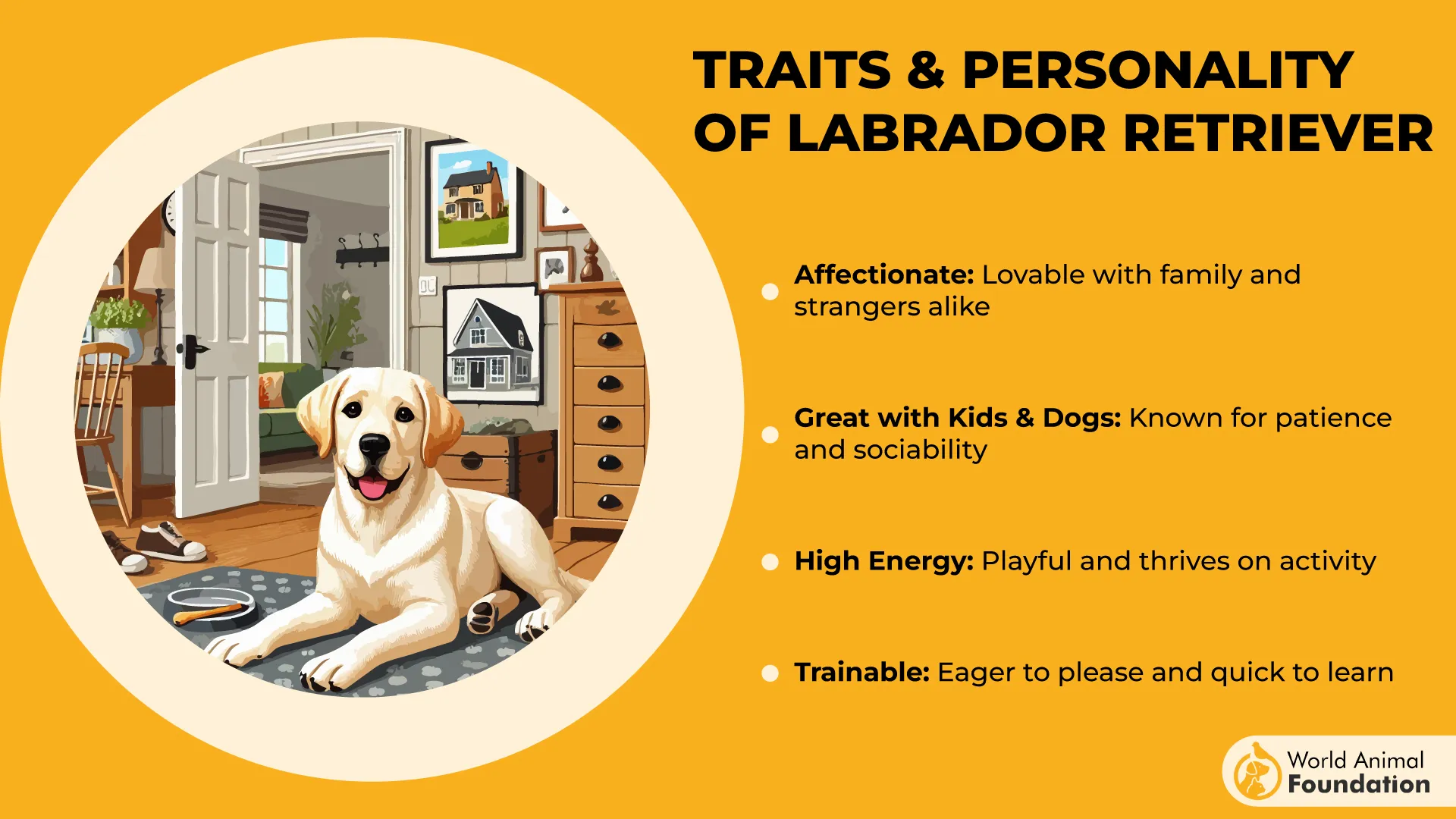
Labradors excel at training because of their intelligence and eagerness to please. They thrive as service dogs, search-and-rescue workers, or therapy animals. However, their enthusiasm can lead to destructive behaviors like chewing or digging if they don’t get sufficient exercise and mental stimulation.
Health-wise, Labs are generally hardy but prone to conditions such as hip and elbow dysplasia, eye problems, and obesity. Careful monitoring of diet and activity helps ensure they live long, vibrant lives filled with loyalty and companionship.
Quick Tips
Prevent weight gain by controlling food portions and limiting treats.
Provide daily exercise, ideally swimming or retrieving games.
3. German Shepherd

German Shepherds are renowned worldwide for their intelligence, versatility, and unwavering loyalty. Originating in Germany in the late 19th century, they were bred to herd and protect livestock. Over time, their trainability and courage made them the preferred choice for police, military, and service work, as well as cherished family companions.
Physically, German Shepherds are powerful yet agile dogs with a noble stance, muscular build, and dense double coat. Their coat colors can vary from black and tan to sable or solid black. Regular grooming helps manage shedding, particularly during seasonal coat changes.

Temperamentally, this breed is confident and protective, often forming deep bonds with its family. They are alert and wary of strangers but affectionate with those they trust, making them both dependable guardians and loving pets. Their loyalty is one of the traits that consistently sets them apart.
Highly intelligent and trainable, German Shepherds excel in obedience, agility, and advanced working roles. They thrive when given purposeful tasks, whether as therapy animals, search-and-rescue partners, or canine athletes. Without consistent training and stimulation, however, they may become anxious or overly protective.
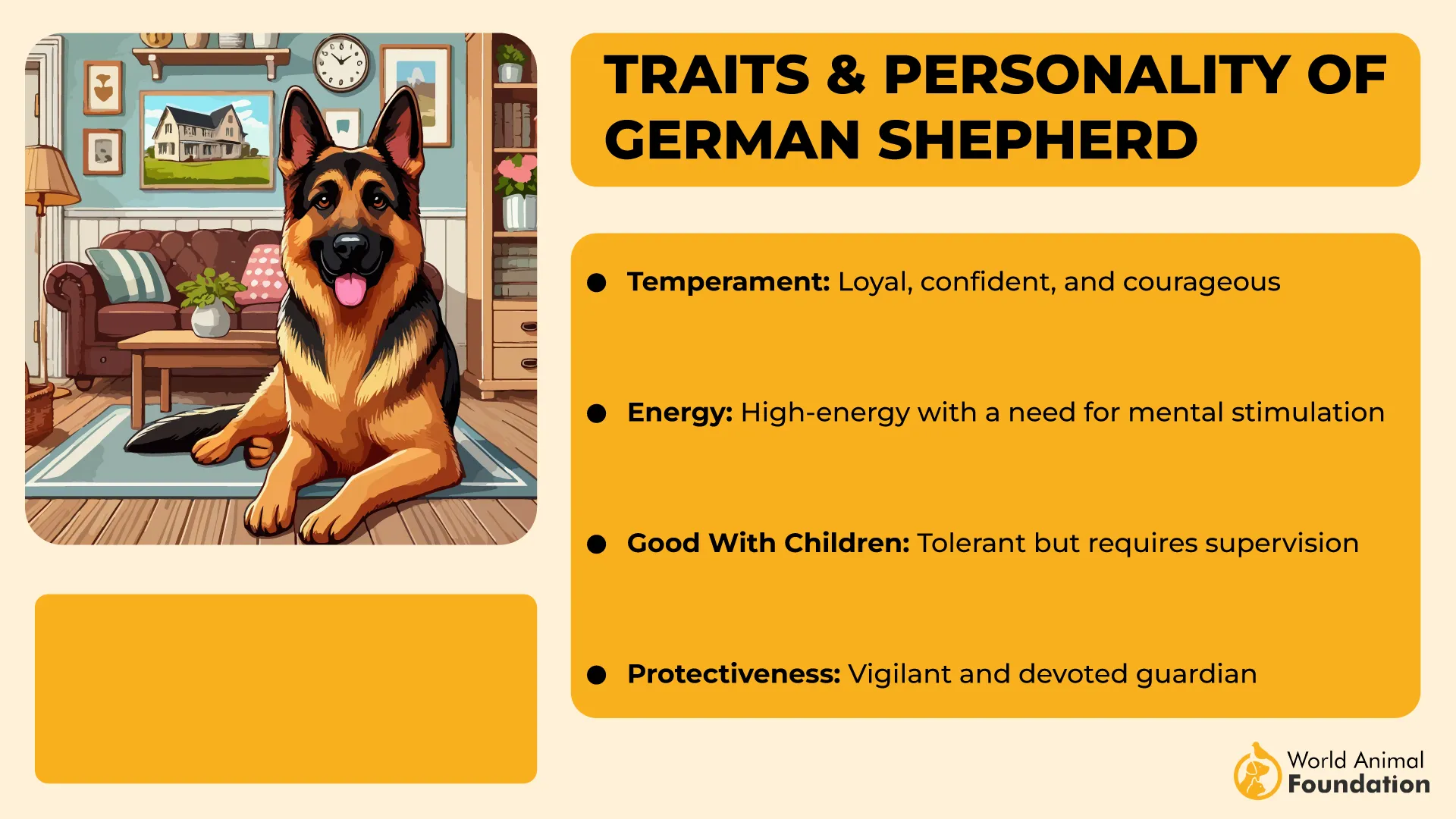
Health considerations include hip dysplasia, digestive issues, and degenerative myelopathy. With proper veterinary care, exercise, and a balanced diet, German Shepherds live fulfilling lives as loyal protectors and steadfast friends.
Quick Tips
Provide structured training early to encourage confidence and obedience.
Keep them mentally engaged with challenging tasks and regular exercise.
4. Boxer

Boxers are playful, loyal companions with an infectious zest for life. Originally bred in Germany as working dogs, they retain their strong protective instincts while also excelling as affectionate family pets. Their athletic build and high energy make them ideal for active households that can match their enthusiasm.
Energy is one of the Boxer’s defining features. Daily exercise, at least 30 to 60 minutes of vigorous activity, is essential to prevent restlessness or destructive behavior.
They love running, agility training, and spirited games of fetch. Owners often describe their comical “kidney bean dance,” a signature wiggle of joy that reflects their playful spirit.
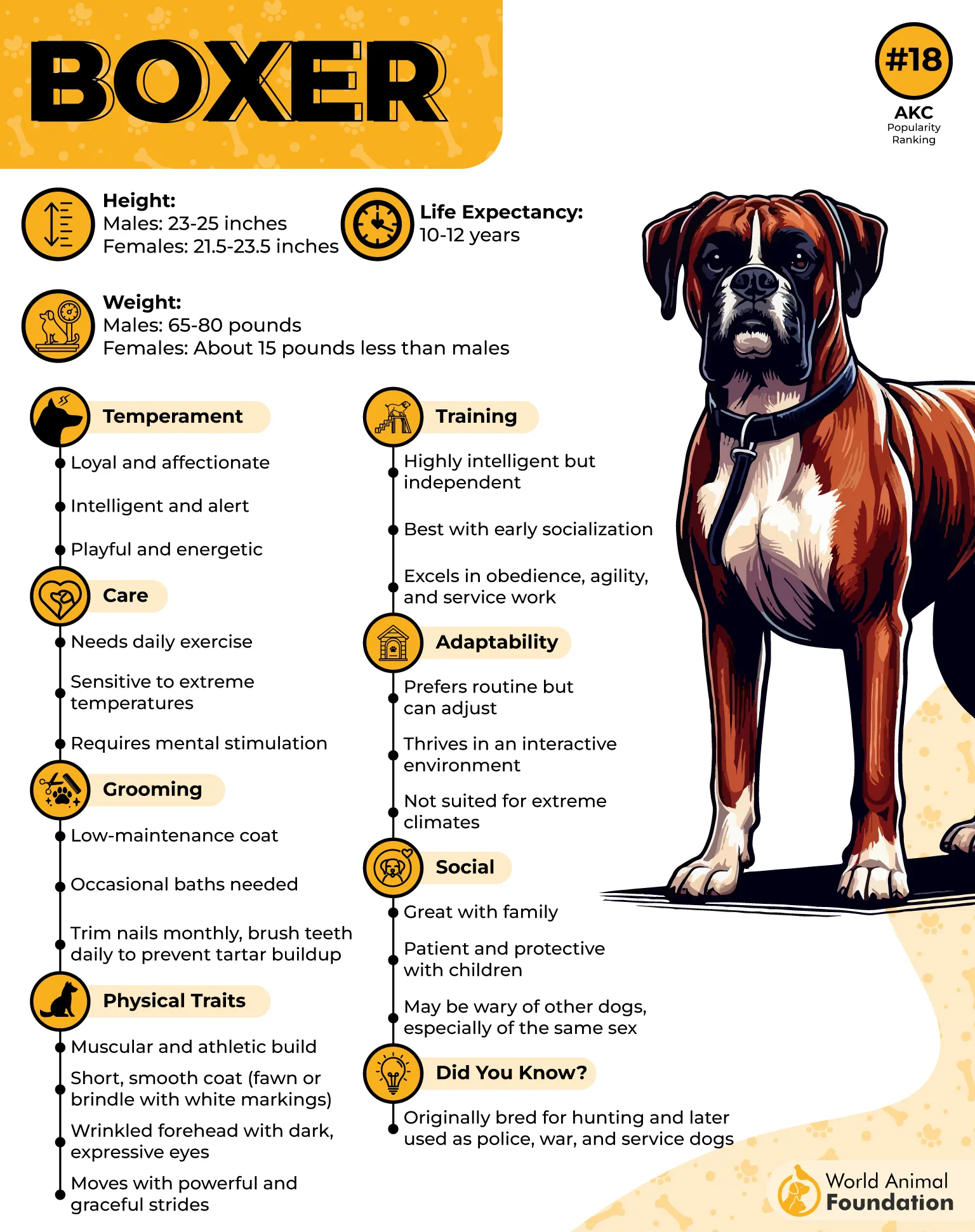
Loyalty is at the heart of the Boxer’s personality. They bond deeply with their families, often seeking close physical contact, even attempting to be lap dogs despite their size. Their patience with children and affectionate nature make them outstanding family companions.
Boxers also serve as reliable protectors. Alert and wary of strangers, they are naturally watchful without being aggressive. Their bark is strong enough to deter threats, yet proper socialization ensures they remain balanced and friendly.
Being intelligent and eager to learn, Boxers respond well to consistent, positive training. Mental stimulation is just as important as exercise, with puzzle toys and obedience practice keeping them sharp. When given both love and structure, Boxers thrive as happy, loyal partners.
Quick Tips
Combine physical exercise with puzzle games to keep them balanced.
Begin socialization early to nurture confidence and friendliness.
5. Beagle

Beagles are cheerful hounds with big personalities packed into a smaller frame. Originally bred in England for rabbit and hare hunting, they carry a sharp nose and keen tracking instincts. Today, they’re treasured as loyal companions known for their happy-go-lucky nature and boundless curiosity.
Their physical appearance is instantly recognizable: long, floppy ears, expressive eyes, and a tri-colored or bicolor short coat. Compact yet sturdy, Beagles are built for stamina, capable of long walks and energetic play sessions. Grooming needs are light, though shedding can be moderate, as Purina mentions.
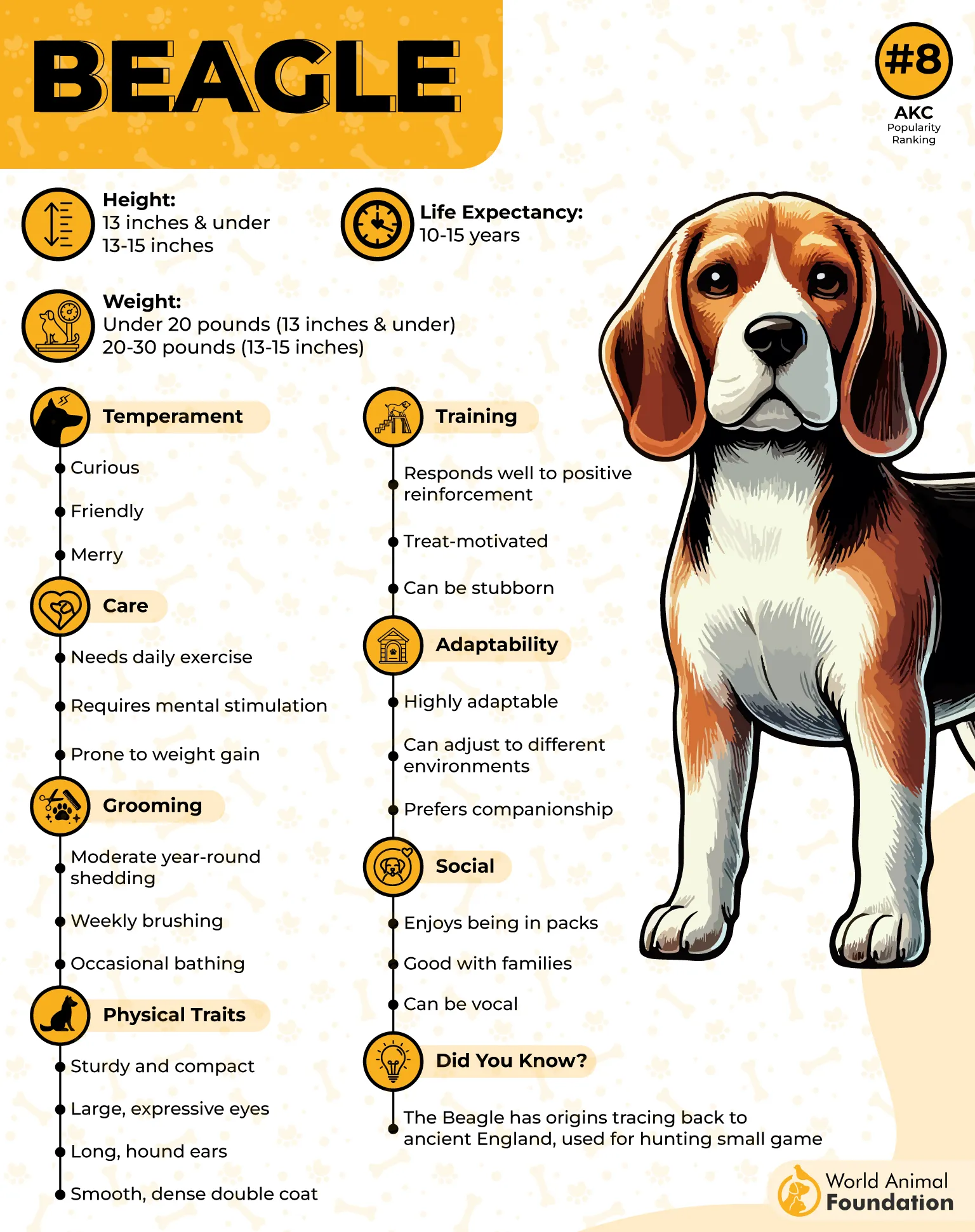
Temperamentally, Beagles shine as affectionate family dogs. They get along well with children and other pets, making them one of the most sociable breeds. They love companionship and dislike being left alone for long, which means they thrive in households that can provide attention and interaction.
As scent hounds, Beagles can be independent and easily distracted by smells. Training requires patience and consistency, with positive reinforcement producing the best results. Their persistence on a scent is what made them excellent hunters, but can sometimes challenge obedience in daily life.
Health-wise, Beagles are generally robust but may face conditions like hip dysplasia, epilepsy, or ear infections due to their floppy ears. Regular vet visits and exercise help keep them in peak condition, ensuring a long and joyful companionship.
Quick Tips
Use scent-based games to satisfy their natural tracking drive.
Keep them mentally stimulated to reduce boredom-related mischief.
6. Border Collie
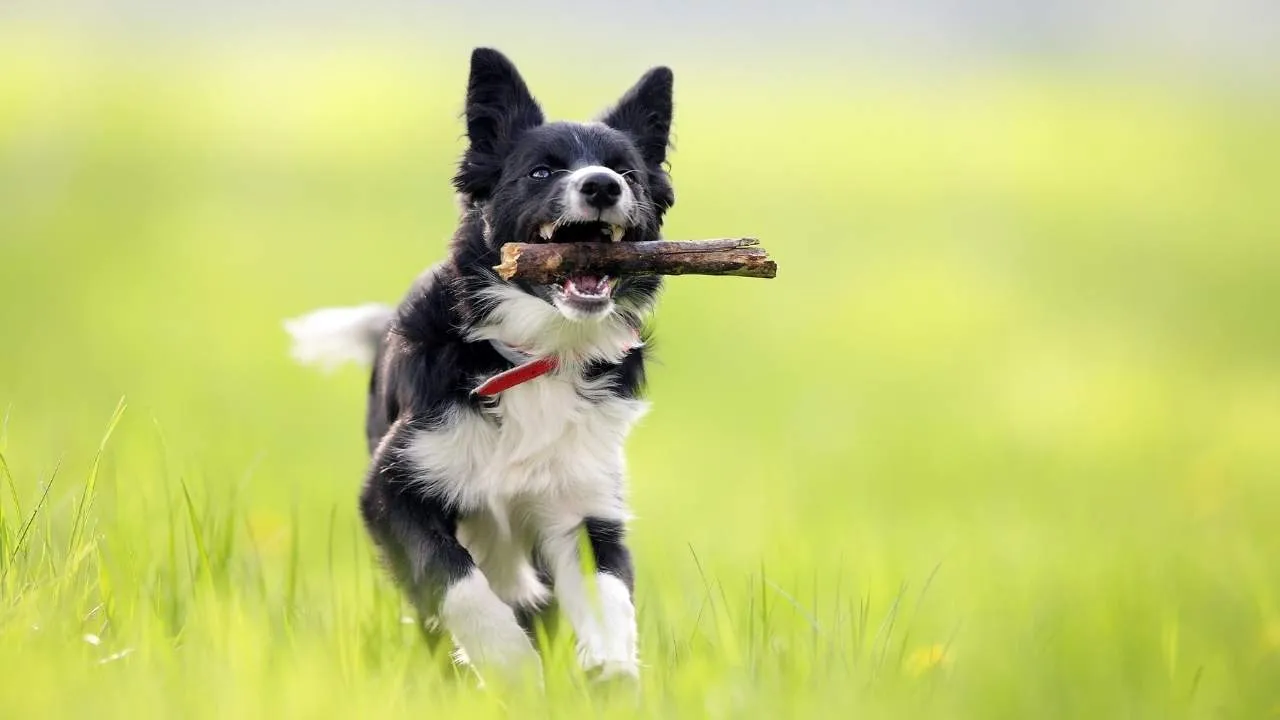
Border Collies are widely regarded as the most intelligent dog breed, originally developed along the Anglo-Scottish border to herd sheep. Their sharp minds and unmatched stamina make them exceptional working dogs, but also highly engaging companions for active families.
Physically, Border Collies are agile and athletic, with medium builds suited for speed and endurance. Their coats range from smooth to rough and come in various colors, though black and white is most iconic. Grooming is moderate, requiring regular brushing to manage shedding.
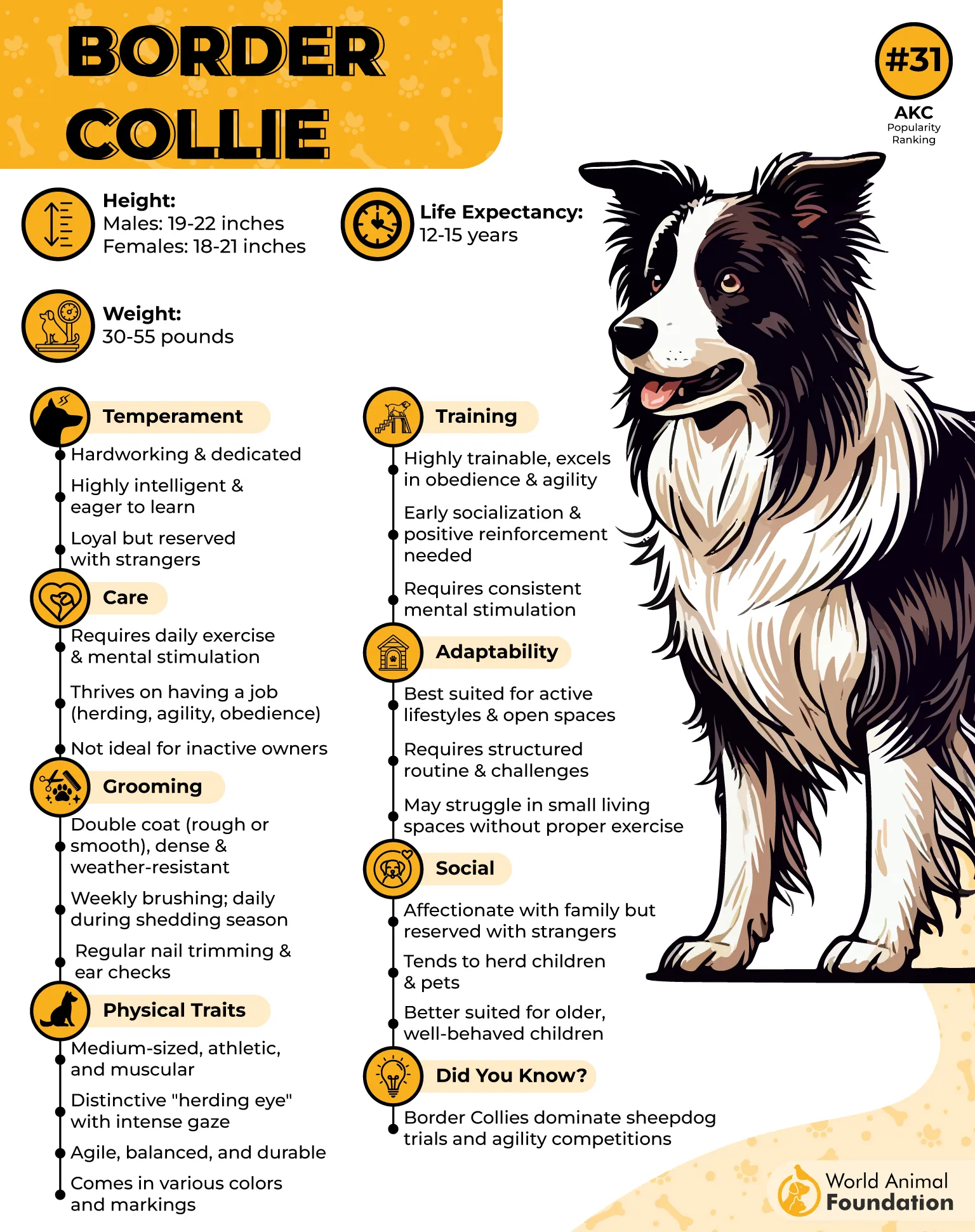
What sets this breed apart is its need for activity and mental challenge. Border Collies thrive on work, whether herding, competing in agility, or mastering complex tricks. Without adequate stimulation, they may become restless or develop destructive habits. Owners should be prepared to provide structured exercise and problem-solving games daily.
Loyalty and focus are at the heart of their personality. Border Collies bond strongly with their people and often act like “velcro dogs,” staying close and attentive. While affectionate, they can be reserved with strangers, showing more devotion than overt friendliness.
Health concerns include hip dysplasia, eye disorders like progressive retinal atrophy, and in rare cases, epilepsy. With proper care, their intelligence and devotion make them one of the happiest and most loyal breeds to share life with.
Quick Tips
Engage them with agility, herding, or puzzle toys to prevent boredom.
Provide consistent training and structure to channel their high energy.
7. Cocker Spaniel
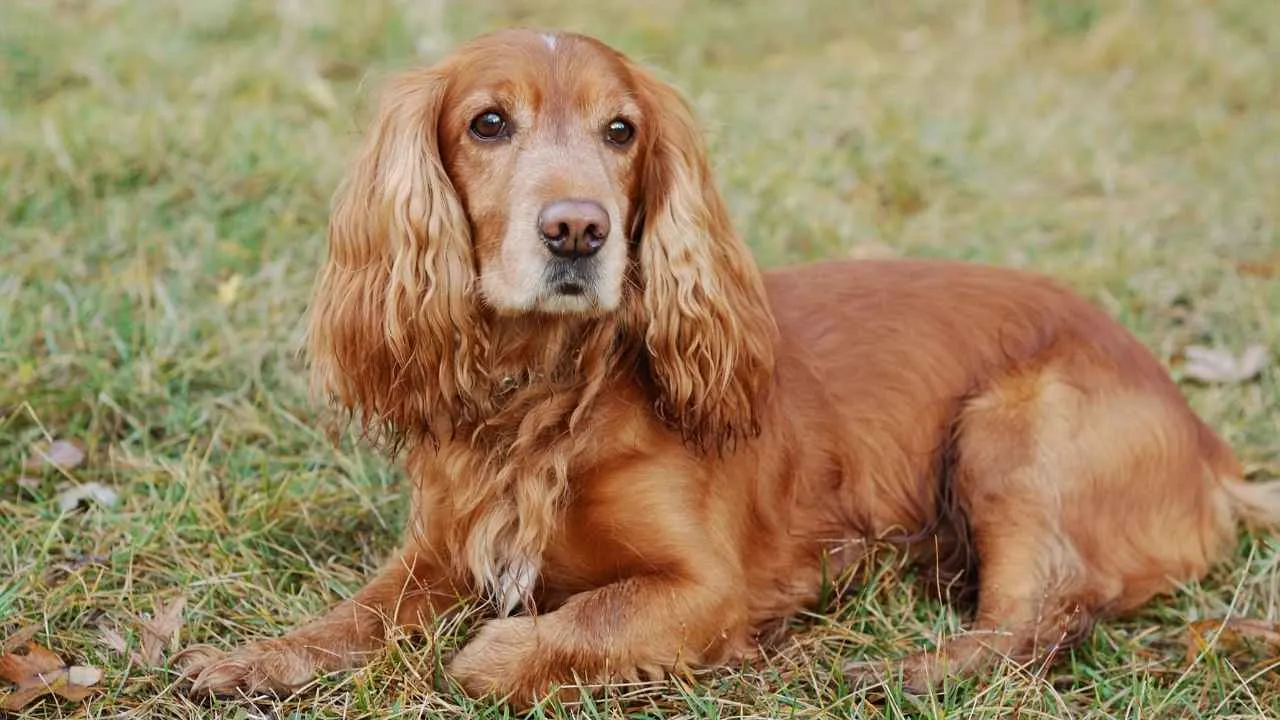
Cocker Spaniels are affectionate companions known for their soulful eyes and silky coats. Originally bred in England as hunting dogs to flush out woodcocks, they retain their sporting instincts but are equally adored for their gentle, family-friendly nature.
Physically, they are compact and elegant, with long ears, feathered coats, and a sturdy yet graceful build. Grooming is a key part of their care, as their flowing fur can mat without regular brushing. Many owners schedule professional grooming to keep coats neat and healthy.
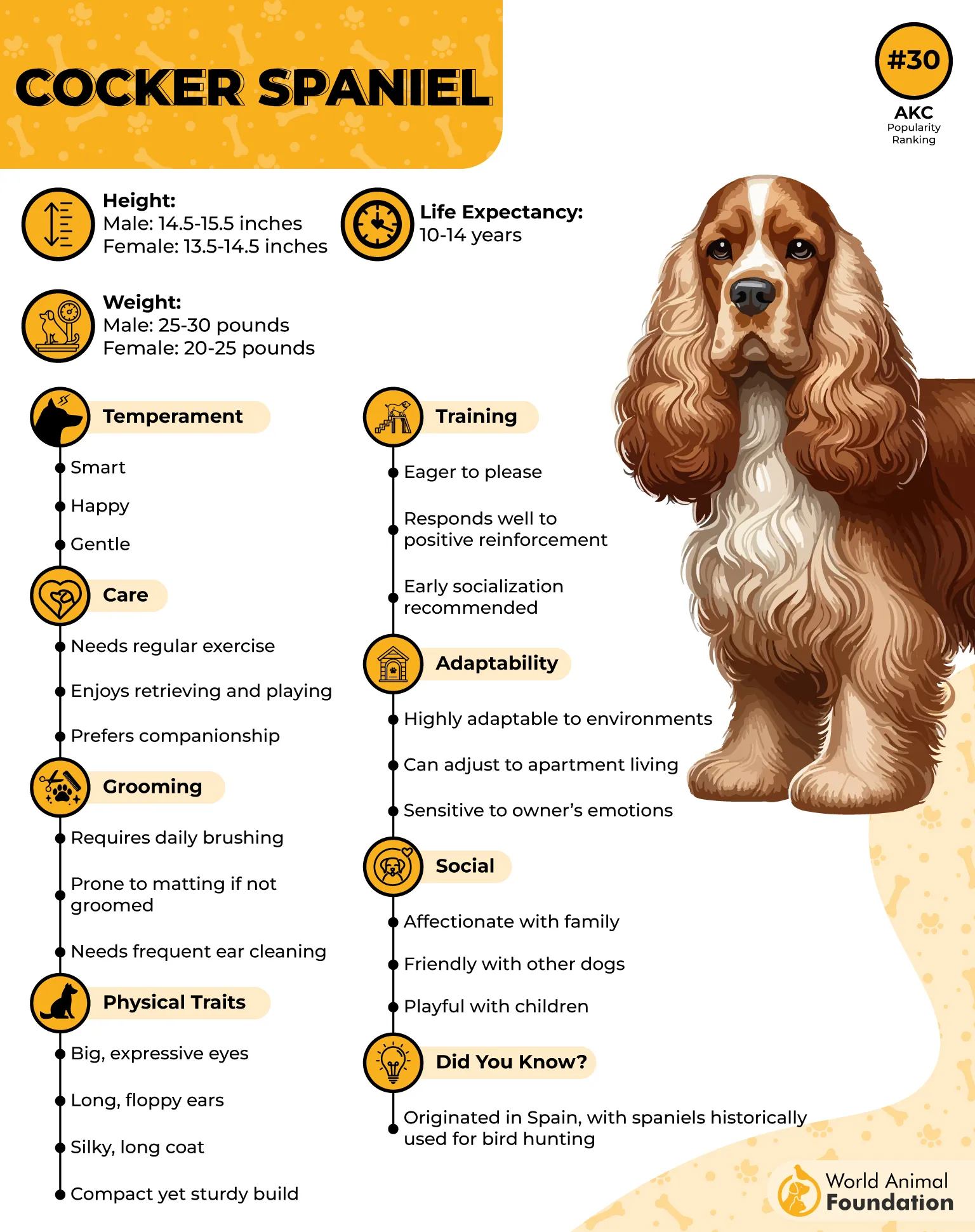
Their temperament makes them wonderful family pets. Cockers are affectionate, social, and eager to please, often following their people closely — a classic “velcro dog” trait. They bond deeply with children and adults alike, thriving in homes where they receive ample attention and affection.
Training Cocker Spaniels is generally rewarding, thanks to their intelligence and sensitivity. Positive reinforcement works best, as harsh methods can discourage them. Early socialization helps them grow into confident, well-mannered dogs who adapt easily to different environments.
Health concerns can include ear infections due to their long ears, as well as hip dysplasia and eye issues. With regular care, a balanced diet, and plenty of exercise, Cockers remain joyful, loyal companions for many years.
Quick Tips
Brush ears and coat frequently to prevent tangles and infections.
Use gentle, reward-based training to encourage their sensitive nature.
Conclusion
When it comes to loyal dog breeds, few companions rival the joy and devotion of the breeds mentioned above. These devoted family dogs are celebrated by the American Kennel Club and beloved worldwide for their affectionate nature, playful personalities, and strong loyalty. They’re not only great family dogs but also excel as therapy dogs, service animals, and excellent companions for first–time dog owners and older adults alike.
Of course, other breeds such as the Cavalier King Charles Spaniel, Doberman Pinscher, Shih Tzu, Irish Setter, Jack Russell, Bichon Frise, Great Dane, and Shiba Inu also embody a dog’s loyalty with deeply loyal temperaments and unique personalities.
Whether you’re looking for nanny dogs with gentle instincts, fiercely loyal guardians, or charming dogs with an independent streak, certain breeds form strong bonds and bring joy to every dog owner.


